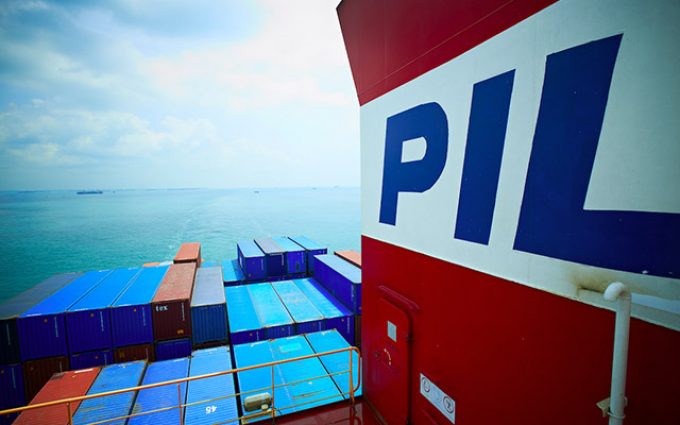Liner schedule reliability: some improvement as strike turmoil begins
On the eve of possible widespread disruption due to industrial action across US east and ...

Singapore-based container carrier Pacific International Lines (PIL) has filed an application with a Singapore court for protection from winding-up or enforcement orders while it begins financial restructuring talks with creditors.
It said it had developed a restructuring plan with lenders and investor Heliconia Capital Management, part of Singapore’s sovereign wealth fund. The court order would impose a moratorium for four months during negotiations.
“The restructuring plan contemplates the provision of fresh financing by the investor (or entities managed and controlled by it) ...
Keep our news independent, by supporting The Loadstar
Volume surge and an early peak season? 'Don't celebrate too soon,' warning
Container spot rates diverge: to Europe still falling, but firmer to the US
Ecommerce likely the front-runner in resurge of transpacific trade after deal
Hapag-Lloyd won't take bookings if port congestion leaves cargo stranded
China-US trade tariff pause could drive a rebound for transpacific rates
Shippers should check out the 'small print' in China-US tariff cuts
Service chaos from trade ban with India a problem for Pakistan shippers
Carriers impose 'emergency operation' surcharges on Pakistan cargo
Airfreight rates ex-China 'loss-making', but hopes of a trade deal stay high
Serious threat to jobs in US logistics as tariffs cause economic 'stagflation'
15% rebate for box ships as Suez Canal Authority woos carriers
White House u-turns see freighters flying but keep logistics players on their toes
MSC in terminal switch as Nhava Sheva gets strong start to new fiscal year
Peak season or recession? Forwarders and shippers need to 'stay flexible'
Volga-Dnepr claims 'pirate' Canada has 'hijacked' its stranded aircraft


Comment on this article